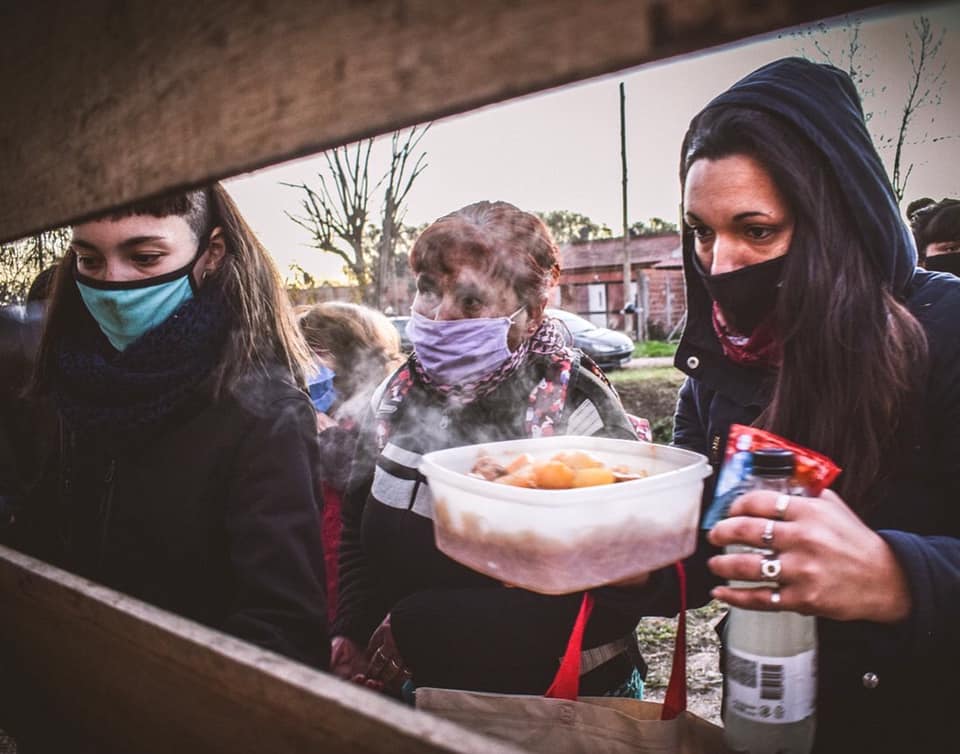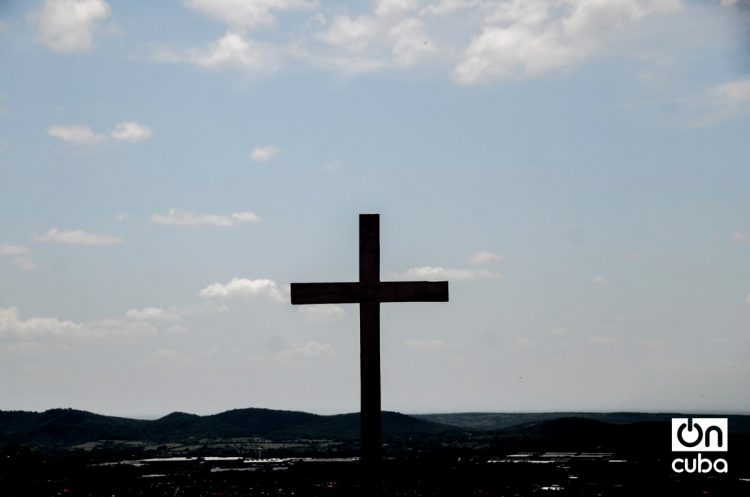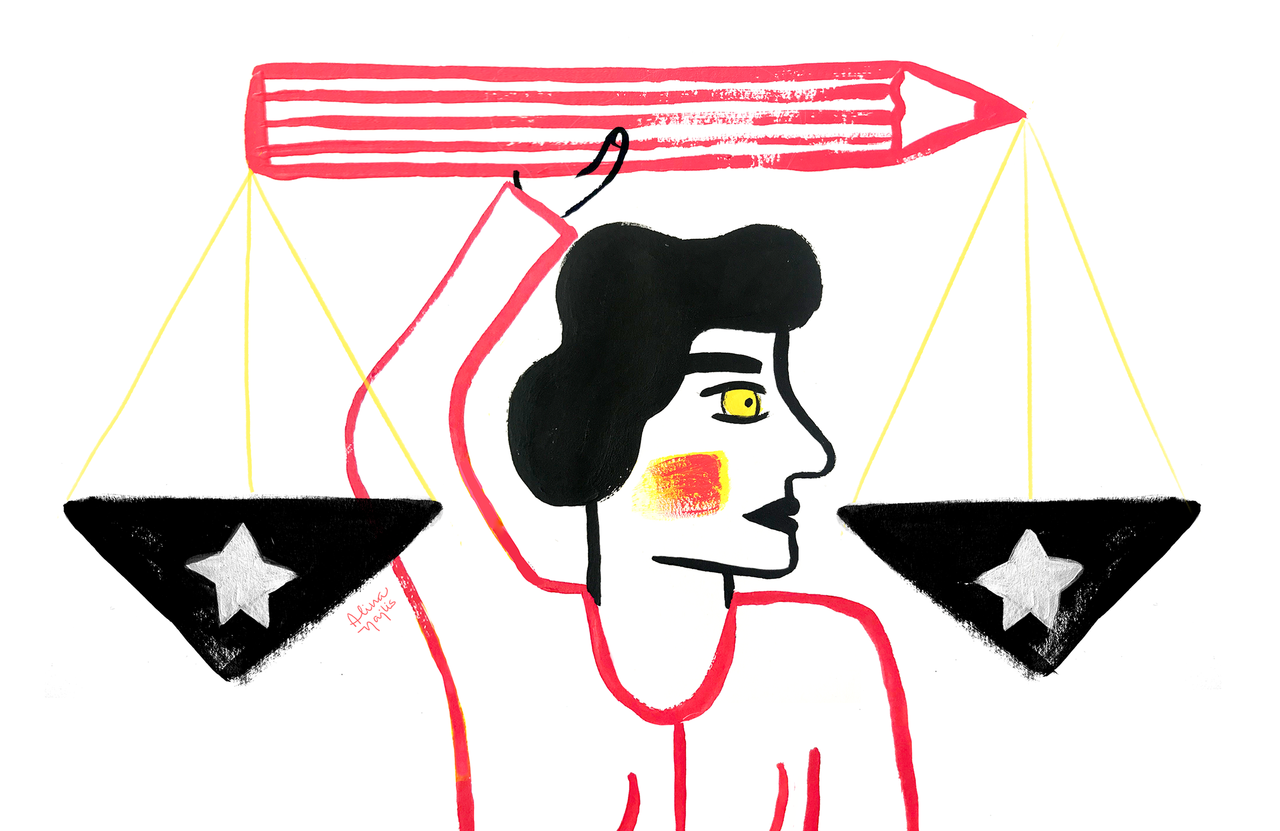The current crisis has brought about widespread change, but that does not mean the same thing for all individuals and groups. The crisis has varied impacts on men and women and limits their rights in different ways, just as it does for disadvantaged areas. This is intertwined with the establishment or deepening of authoritarian programmes and the consolidation of anti-rights actors. Here I will comment on both issues, and on their effects in Latin America.
Rights, authoritarianism, and gender inequalities
The crisis does not equalize us; rather, it underscores pre-existing inequalities, including gender inequalities. Women outnumber men as workers in healthcare systems,i and they carry out the majority of care work (paid and unpaid) in the home.ii At this juncture, care work is increasing in both spheres due to the closure of schools and workplaces and increasing precarity and healthcare needs. Women are more exposed to contagion and are more likely to have to work longer hours.
Another worrisome issue is violence. The most common recommendation for limiting contagion has been physical isolation. Governments have established quarantines, stay-at-home orders, and school and workplace closures. Given mobility restrictions, there has been a dire global increase in violence against women in domestic settings. Dangerous homes are not new. One in three women in Latin America has reported having suffered physical or sexual violence in a relationship and 77 percent of sexual crimes occur in the home.
During this crisis, police records have shown a stark increase in reports of domestic violence, and hotlines for victims of gender-based violence have been overwhelmed around the world. This has also happened in Latin America, with the aggravating factor of previously high rates of gendered violence. Studies in Brazil, Argentina, Colombia, Chile, Ecuador, Peru, Guatemala, Puerto Rico, and Honduras have verified the increase in calls for help and/or complaints. In other countries—Nicaragua, Venezuela, El Salvador, Cuba, and Bolivia—it is impossible to access systematic data, but social organizations have identified a significant amount of cases associated with the health emergency.
The United Nations Population Fund has asked governments to guarantee the human rights of women and children and to implement urgent measures for their protection in homes. Some countries have implemented measures such as: specific or broader communication channels for reporting abusers; communication campaigns to publicize legal channels for making complaints and seeking institutional protection (such as the Barbijo Rojo initiative in Argentina); instructions for prosecutors on how to proceed with these cases during lockdowns; the implementation of prevention and response measures in cases of gendered violence (such as the ankle bracelet programme in Uruguay); increased capacities in emergency shelters; and maintaining operations in reporting units during lockdowns. Some governments have denied the increase in violence (Mexico) and others have taken no strong measures in this regard (Cuba). Even where public policies do exist, the measures often do not reach women in rural areas or those with limited access to technology or who live with highly controlling people, including their abusers. Social organizations monitor cases as much as possible.
Violence within households can also be associated with the absence of labour rights when it occurs in other people’s homes. Paid domestic workers are a highly vulnerable group. Among them, indigenous and migrant women and women of African ancestry are disproportionately represented.iii Even before the pandemic, their work was already devalued, precarious, and informal.
In Ecuador, members of the National Union of Remunerated Domestic Workers have reported cases of women who continue to serve as live-in workers even when their employers do not take measures to avoid exposure to the virus. Others are forced to care for sick people without any protective equipment. In Brazil, the first COVID-19 death was a domestic worker infected by her employers. Some domestic workers are being fired without compensation or any protection. Without labour rights, domestic workers face acute situations of risk and violence.
The entire informal sector is experiencing decreases in terms of rights. In Latin America and the Caribbean, informal employment represents 53.1 percent of all jobs. In several countries, a significant portion of women’s labour is concentrated in self-employment, unpaid family work, and domestic service. Those occupations have a serious lack of labour rights and little social security coverage.
According to the International Labour Organization, the informal sector will see its income decrease by at least 60 percent worldwide (and even more in low- and lower-middle-income countries), and 1.3 billion workers are at risk of losing their income altogether. These trends are already in evidence. Large groups are prevented from improving their lives as they are being forced to survive on extremely low incomes earned on the locked-down streets. On the other hand, delivery workers continue to do their work with little remuneration and no real protection against infection. These workers have held regional strikes to denounce their abandonment by companies and government alike.
Government responses in the region have been uneven. Some countries have transformed or expanded cash transfer programmes. But their scope is not sufficient to need due to increased scarcity. These programmes tend to reproduce the gendered division of labour that entrenches women as exclusive caregivers, and are not tied to the economic autonomy needs of impoverished people and groups. Governments that are handling the crisis more effectively, such as the Argentine government, have nevertheless failed to sufficiently combat existing dispossession and to protect large sectors of society. Meanwhile, social organizations, many coordinated by women, are organizing in solidarity to provide services in areas neglected by governments.
Perversely, governments that are allied with the economic elites are introducing deepening neoliberal reforms. For example, Ecuador’s government has institutionalized the mandates of the International Monetary Fund and has rolled back labour rights and made cuts to education through a so-called Humanitarian Support Law that continues to be disputed by social organizations, working class and student groups. The same is happening in other countries. In Ecuador and Chile there are already protests on the streets despite the risks posed by the pandemic. They face a clear dilemma: risk dying of the coronavirus or starve. Those are the options.
Authoritarian measures and militarization shore up this path. Even governments with a more protectionist profile (prior to the crisis or in their management of it) have deployed security policies with negative consequences for human rights. This lineiv has the added danger of the broad presence in Latin America of authoritarian governments and its history of military dictatorships.
The warlike and fearmongering vocabulary is a central element of these political actions. Several countries (Chile, Peru, Ecuador, Bolivia, Honduras, El Salvador, Panama, and others) have registered excessive uses of force by the police and military bodies. Abuses of power are being excused and even supported in some sectors of civil society, forming part of a broader phenomenon of what has been called the “social lynching” of those who do not comply with the rules.
Faced with these practices, people from low-income neighbourhoods are less protected and more likely to be harassed. The exercise of police violence is classist and racist. When the victims of police abuse are women, the assaults are often sexualized. The gendered exercise of violence has also been made clear with the controversial “Pico y género” measures decreed in Panama, Peru, and Bogotá, according to which women and men have alternating days when they can leave their homes, thus making “visible” the compliance with mobility restrictions. This could endanger the rights of the LGTBIQ+ population, trans and non-binary people, who are more exposed to violence by police forces.
At the same time, the closure of national borders to avoid the “importation” of infected people has prevented migrants who were in transit from continuing to their destinations, and has exacerbated xenophobia, which is now focussed on “the virus coming from outside”. Without access to basic services and fundamental rights, migrants are more exposed to social and police violence in detention centers and on the streets, and to human trafficking networks. According to UN Women, given mobility restrictions, migrant women and girls face a greater lack of protection and increased violence. Governments in the region do little to ensure rights for these populations, and the problem has been delegated almost exclusively to the UNHCR and IOM.
The same thing occurs in prisons. Due to isolation policies in most countries in the region, the incarcerated population is not receiving visitors, which, although it is a measure to avoid contagion, could exacerbate their vulnerability. The governments of El Salvador, Colombia, and Brazil have demonstrated their sordid perversity in the treatment of the incarcerated population. Civil society organizations, feminists, and human rights defenders have promoted actions regarding the release of prisoners, for example, in Ecuador.
The overall panorama demonstrates that the management of the crisis and its impacts are limiting rights and producing varied effects for women and impoverished groups, evidenced in the limitation of labour rights, security, protection, and access to justice, equality, and an adequate standard of living. Pre-existing gender inequalities and the expansion of authoritarian policies and programmes have provided the foundations for these limitations.
Rights, conservatism, and gender inequalities in a pandemic
Authoritarianism and restrictions of rights converge with another issue of growing interest during the crisis that also promotes curtailing rights: religious fundamentalism. Before the crisis, anti-rights religious actors had already gained traction and a following in Latin America, the United States, and throughout the world. At this juncture, that agenda has continued and expanded. Sexual and reproductive rights continue to be a primary focus.
Previous health crises (such as the Ebola crisis) have resulted in reduced sexual and reproductive rights for girls, adolescents, and women. These rights are jeopardized due to the redirection of medical resources, women’s fear of contagion if they attempt to access health services, the even greater shortage of contraceptives, and the impossibility of making use of (formal or informal) services to terminate unwanted pregnancies. Pressure from religious fundamentalists now compounds these factors.
Across the region, anti-abortion forces have employed a rhetoric of fear, arguing that the pandemic is a form of punishment for feminist advancements (see the case of Mexico) and have pushed for the closure of abortion services. Cases like these have been verified in Brazil, Peru, and Mexico; while in Argentina, politicians with religious agendas have questioned the government’s decision to consider reproductive health services essential, and the same happened in Peru.
Anti-rights actors insist that international organizations are pressing for the legalization of abortion during the pandemic. John Barsa of the United States Agency for International Development (USAID) sent a letter to the Secretary General of the United Nations requesting that the UN should not use this crisis as an opportunity to advance access to abortion as an essential service “and that the United Nations should not intimidate or coerce member states committed to the ‘right to life’”. They asked for the removal of references to “sexual and reproductive health” and its derivatives from the Global HRP and the provision of abortion as an essential component of the UN’s priorities to respond to the pandemic. In Perú, Ecuador, and Bolivia there have been religious statements along the same lines.
At the same time, fundamentalist groups, especially evangelicals, are taking advantage of the seclusion of lockdowns to indoctrinate traditional gender roles, the value of the “original family”, and the perversity of feminism and sexual diversity. In addition to the technological resources that cults can now access, pamphlets are circulating that teach women to be good wives and housewives.
This effort is being made by different religious anti-rights organizations. Seventeen authors from this field joined in the publication Pandemonium: ¿De la pandemia al control total? (Pandemoniuom: From the pandemic to total control?) edited by the conservative author and activist Carlos Beltramo. In his foreword, Beltramo affirms that the left is trying to read the pandemic as confirmation of their progressive theses, but that it is not “totalitarian states” that will take us out of the crisis, “but families, small businesses, those of us who seek to generate wealth through work, and who now, obedient and responsible, are in a confinement that we understand less and less”. In that same publication, German journalist Birgit Kelle defines a central thesis, namely that “women are at home right now and therefore out of control—and perhaps that is the best news of the coronavirus pandemic”. Kelle asserts that what the feminist movement calls a “horrible re-traditionalization” is its greatest fear. “A mother is and will continue to be the biggest problem of the feminist movement”, she concludes.
As in the United States and other regions of the world, in Latin America, religious fundamentalisms have been vocal on the issue of the pandemic. Spokespeople for the transnational organization Con Mis Hijos No Te Metas have called for fasts and prayer to combat the virus. Jeanine Áñez, interim president of Bolivia, called for unity, fasting, prayer, repentance and faith at the beginning of the total lockdown, as a “weapon of resistance” against the coronavirus. Along with his despotic and denialist statements, in Brazil, Jair Bolsonaro declared religious services “essential”. Throughout the region, especially in Brazil, Chile, Argentina, Perú, and Mexico, evangelical and Catholic groups have questioned the measures of physical isolation and the very existence of the virus, and have called on the faithful to trust in God for the solution to the situation. There are not explicit alliances between the government and religious reactionaries in every country, but these actors try to push their agenda at every opportunity.
In the midst of the pandemic, the Brazilian president has announced a project that prohibits “gender ideology”, a central category of this programme and anti-rights activism. The Federal Supreme Court unanimously declared unconstitutional a municipal law that vetoed discussions on gender in Novo Gama (GO) schools. But Bolsonaro continues to push a federal bill which he claims represents a “constitutional urgency”.
But the religious agenda is not homogeneous. Pro-rights communities of faith have engaged in campaigns that work against conservatism. Forty-eight organizations from Argentina, Colombia, Costa Rica, Mexico, Brazil, Bolivia, Chile, Cuba, Ecuador, and Honduras, along with regional organizations signed an interdenominational declaration denouncing inequality prior to the crisis, rejecting hate speech and violence, defending religious diversity, denouncing scapegoating—based on moralities, race, national origin, etc.—to explain the pandemic, condemning gendered violence and institutional authoritarianism against low-income areas, and calling for religious action based on caring for migrants and citizens alike,and guided by principles of diversity and justice.
Overall, we see how the confrontation with the pandemic is also conditioning the demands and formats of the agendas of the anti-rights groups from the religious-fundamentalist field. They were already pursuing this agenda, and their efforts have only intensified. The limitation of sexual and reproductive rights as a consequence of the health crisis could be accentuated by the action and political influence of these actors and their programmes, which have gained influence in recent years. Proponents of religious fundamentalisms are seeking to deepen their political influence while producing an anti-state programme that also goes against the guarantee of universal rights.
More than normalcy, there will be conflict
The pandemic has been confronted in different and sometimes starkly divergent ways. Governments and political leaders have exhibited their inability to keep systems afloat. With few exceptions, management of the crisis in Latin America has predominantly been informed by neoliberal and authoritarian ideas. The post-crisis situation will very likely be managed from the same playbook.
On the other hand, social organizations and citizen collectives have been activated to save lives; they are creating initiatives for providing solidarity and support; and they are resisting the advancement of neoliberalism.
Most analyses insist that the pre-pandemic world has disappeared. This crisis has created new and irreversible circumstances on a global scale. It is too soon to know what the new normal will be, but conflicts in the region will almost certainly intensify. The crisis will exacerbate struggles for public goods and services and for a broad array of social, political, and civilian rights that were already in dispute and are now being resumed in a new scenario of curtailed rights for women as well as impoverished and racialized social groups. Gender struggles and feminist political actors continue to be a source of strength in the fight against authoritarianism and conservatism.
i. Globally, women make up 69 percent of health workers.
ii. On a global average, women spend approximately three times as much time as men on unpaid domestic and care work.
iii. In Ecuador, approximately 3 million people, mostly women, are employed as informal domestic workers. In Brazil, there are more than 6 million.
iv. Most countries have followed a model of militarized lockdowns, including China, Italy, Spain, Iran, Israel, India, France, and the United States.
Este texto fue publicado en: https://www.irgac.org/2020/07/13/latin-america-in-a-pandemic-rights-authoritarianism-and-conservatism/?fbclid=IwAR3iqVVEbJ2yeZ_EWPx15mAmfJpuB_s9ghXGSNPXkW64GrLcL2mSgguBi4o
Créditos de la imagen:
• Foto del autor del autor Kaloian
Créditos de la imagen destacada:
• Foto del autor del autor Kaloian




